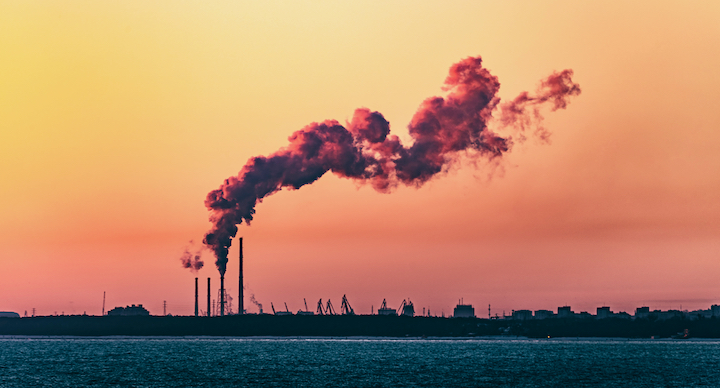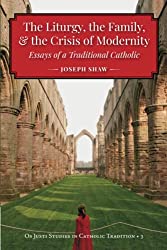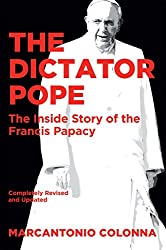
In 1891, Pope Leo XIII brought forth the encyclical Rerum Novarum. It was a milestone in the Catholic Tradition, inaugurating a new era of Papal Social Encyclicals responding to the social injustice of the modern world.
The latest being the magisterial Caritas in Veritate of His Holiness Benedict XVI.
In Rerum Novarum Leo XIII challenged unrestricted capitalism, supported the Trade Union movement and clearly sought to address what the Pope called:
the misery and wretchedness pressing so unjustly on the majority of the working class.
Rerum Novarum
Now although Leo XIII initiated this new era in Papal Social Teaching, it has to be noted that his work was preceded by decades of Catholic response to the 19th century evils of industrialisation and unbridled capitalism – by the remarkable work of both laity and clergy alike.
In modern parlance, one might say that before Rerum Novarum and the new era of Papal Encyclicals that followed in its wake, there had already been significant activity at the grassroots …
Now in my own private and personal ruminations, I have long felt that there needs to be both very significant grassroots and Papal action to counter the evils that so threaten us in the twenty first century. I speak of Global Warming and other threats to the environment.
It is of course very heartening indeed to see the Holy Father address this in numerous ways, to which I hope this website will in time devote more attention.
But clearly far, far more is needed, if we are to awaken more completely to this evil of the twenty first century.
And in time, I have been hoping to devote much more of this website to this. In time … one reason I confess I have not done so yet is a (crying) need to educate myself further on the issues, before I can speak confidently.
In the meantime, an anonymous scientist friend of mine recently posted me an e-mail, which he has since posted, slightly revised here at his own weblog.
An anonymous scientist friend of mine … I regret I can in no way endorse the vision of Christianity you will find at this website, should you surf to it, dear Reader.
While nonetheless regretting the views on Christianity expressed there, I can still honour the seriousness, the soberness and considerable underlying idealism of my anonymous friend, who calls himself the Trimorph.
Now while I still feel less than competent to address the issues of Global Warming myself, I do have sufficient faith in the Trimorph’s serious reflection over decades to present his views here in this personal weblog.
And in lieu of any serious efforts of my own yet in this regard, this is what I would like to do. Herewith extracts from my friend’s original email:
“I have been thinking about the future too, and that is what this post is mainly about. Prompted largely by the arrival of my son in my life two years ago, I have been trying to understand as best I can how the rest of this century is likely to pan out. In other words, the world in which my son is going to live his life. …
It seems to me that whatever happens, we are going to see very major changes. The big question is whether we are going to deal effectively with climate change. If we don’t, we are headed for catastrophe. But even if we do, we are headed for very, very difficult times. …
Recent work by Jim Hansen of NASA suggests that we must get the CO2 concentration in atmosphere back below 350 parts per million as soon as we possibly can. We are currently at about 387, rising at 2 ppm per year, and the longer we stay above 350, the more chance that trends like the melting of polar ice and the release of methane from bogs in Siberia will accelerate and turn into unstoppable positive feedbacks. (See www.350.org for a good explanation of this and a campaign to get involved in).
Meanwhile James Lovelock of Gaia hypothesis fame has been writing about his new model, which takes account of feedback between living organisms and non-life processes, in a way that mainstream models (on which the IPPC projections are based) do not. Lovelock’s model predicts that at some point, if we keep raising CO2 levels or fail to reduce them, the climate will suddenly flip into a state 6 degrees centigrade warmer than the present.
We can’t at the moment tell when that will be or at what concentration, but the danger is ever-present.
And if such a big rise happens, we’re done for, certainly as a civilisation and perhaps even as a species — mass extinctions will then certainly take place, and in any such event, it tends to be the large creatures at the top of the food chain that are most vulnerable.
I don’t think any of this is unduly alarmist. Events especially in the polar regions since 2007 have been right at the upper end of previous predictions. It suddenly looks much, much more serious and urgent than it did before.
So the UN Copenhagen conference in December is crucial. We simply must have a deal, to reduce emissions and get concentrations down, and fast. And we need to let our politicians know we absolutely require them to safeguard humanity’s future.
If we do manage to do that (and I have to say I’m not optimistic), and if the climate responds favourably, then we are likely before too long to face another kind of challenge: that envisaged by the “peak oil” theorists like Kunstler (kunstlercast. com) and Greer (thearchdruidreport .blogspot. com), both of whom I recommend.
The oil “peak” will actually be of our own making — we cannot use all the oil in the ground, even the easily-available stuff, without pumping far too much CO2 into the air.
But when fossil fuel use starts to decline, for whatever reason, it’s going to affect everything. We will have to decide collectively how to apportion energy sources between growing food,keeping warm (or cool), building/making stuff and travelling around.
If we simply let the market decide there will be mass famine and chaos on a scale far beyond anything the world has ever seen.
Unlike the climate switch which could happen suddenly (a decade or so) at any time, the kind of civilisational decline envisaged by the peak-oilers is likely to be gradual — maybe a couple of centuries –but enormous nevertheless.
Modern technology will cease to be widespread. No mass travel, no mass media, no internet, no mass publishing, no reliable electricity or gas. It is likely to look much more like the middle ages or even the dark ages than the modern era.
It seems to me there are therefore three sorts of things worth putting one’s energy into.
The first is to make as much noise as possible to persuade the powers that be to limit climate change as far as possible. This autumn is the key time for that.
The second is to plan for a future in which this effort is successful. What do we really think is worth preserving from our culture, and how are we going to do it? What skills should we be passing on to our children? What spiritual traditions, and how? Practically, how are we going to preserve what’s best about the world’s learning? Computer discs and CDs will be unreadable. Paper rots after a century or two. Can we distill what’s really valuable to a level that people will be willing to copy by hand? …
And the third (perhaps also needed for the second) is to plan for the climate-mitigation effort being unsuccessful. Then we face mass death and possibly extinction.
What meaning does it then have that each of us is on this earth at such a time? Is it possible to speak of a purpose to life in such circumstances? Perhaps not, if you have a purely this-worldly perspective. But if you believe in some form of survival, the picture changes, or so it seems to me.
In any event, “being with” our culture then shifts into a mode analogous to a vigil for the dying. Quite a challenge, to put it mildly, and one I am only starting to try to get my head around.”
What to say? Initially at least? I would like first to reiterate the Trimorph´s line:
“If we simply let the market decide there will be mass famine and chaos on a scale far beyond anything the world has ever seen.”
What can I say to this evaluation, dear Trimorph, except yes …?
And also that it was undoubtedly with such considerations in mind, that the Holy Father dedicated the latest Social Encyclical to the idea that there is urgent need for a far stronger World Authority beyond the markets, beyond the individual nations.
And for those following this weblog, I will also note that this same thesis given by the Holy Father is core to the legal-political thinking of Valentin Tomberg that has been explored a little in previous entries.
I will also say that I find the presence of an admirable sober realism in my friend’s thinking.
At the same time, I naturally find a lot that is very much missing here, as well. Particularly when the Trimorph states his impression that there are “three sorts of things worth putting one’s energy into. “
Yes how I feel a sense of limitation in this and in the sites that the Trimorph would direct us to to … no doubt with noble intention.
We are for example directed to the site www.350.org. There one will find for example, that one is encouraged to purchase t-shirts which say 350 on them, presumably to raise consciousness as to what is held as important here.
Raise consciousness – but are we asked here to raise consciousness as to the Most Important Things of all in this matter?
As a traditional Catholic, my answer is – naturally – no.
From this perspective, the kind of approach on offer here is selective and narrow indeed. It focusses our attention on one single aspect of the problem, whereas as a traditional Catholic I have to say that the problem being systemic, the answer must be systemic.
In other words, the immense unfolding tragedy of Global Warming is all to do with the whole system of our society and not any specific part of it.
And the answer must address the whole system of our society and not unduly limit our attention to certain factors.
But I fear this is exactly what websites like 350.org at least tend to do. For they are apparently altogether bound up with the very kind of thinking which for a traditionalist is at the very root of the problem.
That is to say, the traditionalist sees that the World has abandoned Faith – and substituted for it a materialistic world vision which has led to a voraciously materialistic consumerist culture.
The traditional Catholic vision by contrast – if it is lived authentically – involves not voracious materialism, but the lived-out awareness that “Man does not live by bread alone” …
That is to say, an authentic traditional Catholicism involves recourse not simply to the things of this world, but also to that which is beyond this world.
Thus I do not so much want so much want to negate what my friend has said. It contains as I say, I feel a needed very sober realism. Even while I lament the sense of limited possibility in the three things which he sees which we can do, I esteem much that is here.
I would not present his noble effort here otherwise.
Nor do I want to negate such websites. No rather than negate the sober realism of my friend, what I would rather like to do is ADD to it what I consider to be another form of sober realism.
And this is the sober realism that there is a Communion of Saints actually interceding for us and who hear our prayers. There are nine hierarchies of Angels, Archangels, Principalities, Powers, Dominions, Virtues, Thrones, Cherubim and Seraphim. Beyond these, there is Our Lady and there is God – Father, Son and Holy Spirit.
And all of this is to speak of an infinity of love for humanity that is entirely beyond any ability to comprehend … But which we who have faith can certainly say, involves an infinity of CARING …
There are miracles. There are Sacraments. Prayer is effective …
All these things are testimonies to the loving care of Saints, Angels, Our Lady … and God.
Yet rarely will one find these infinitely important matters mentioned in environmentally concerned literature.
Conversely, all too rarely will one find the environmental tragedy mentioned in the annals of Catholic Traditionalism.
There needs to be integration, I think. There needs to be those who will at least try to speak in the same breath of both the very sober reality of immense ecological tragedy and the sober reality of GRACE.
And a Grace that our world ignores as it turns its attention ever more to matter alone …
I hope to do much more of such speaking this at this site. But here at least is a faltering beginning …
Hail Mary, full of grace, pray for us sinners, now and at the hour of our death.
And to this prayer, I append the Gospel:
Ask, and it shall be given you: seek, and you shall find: knock, and it shall be opened to you. For every one that asketh, receiveth: and he that seeketh, findeth: and to him that knocketh, it shall be opened. Or what man is there among you, of whom if his son shall ask bread, will he reach him a stone? Or if he shall ask him a fish, will he reach him a serpent?
The Gospel According to Saint Matthew. Chapter 7, verses 7-10. From the Douay Rheims version …
Foreword for Monarchy by Roger Buck
Buying Books at Amazon Through These Links Gives Us a Commission. This Supports Our Apostolate. Thank You if You Can Help Us Like This!









Comments
comments are currently closed
7 responses to “Global Warming and Catholic Response”
Hi Roger and Kim,
I didn’t post here for awhile to avoid the dubious distinction of being the only one of late to do so. I think we are asking do current issues have something to do with the Sacred Order? Conscious of Sacred Order, imbued with the sensibility of a traditional religion one tends to thinks hierarchically, which is to say, with a view to the heights and depths. Placing current issues in this context can sometimes change our response to them or infuse them with an inner richness of spirit. The Church seems to oriented vertically and horizontally. There is the height and depth but also a sense of progression through time and history. This brings us to social, environmental and other concerns. This juxtaposition often places the Church at odds with the perspective of those who only see from the horizontal dimension. The Church may orient itself differently on certain issues (like abortion and homosexuality) or it may provide a multi-dimensional perspective on issues like the poverty, consumerism and the environment. Part of the latter comes from seeing from the long perspective of history with a rich tradition of thought that is at odds with the superficiality of the present generation.
Hello Roger,
Thank you for engaging so fully with my ponderings!
I think you have at least partly misunderstood me, which I suspect is entirely due to my lack of clarity. You are familiar with my reservations about Catholicism, but your example was actually one of the main things I had in mind when I said this:
“What meaning does it then have that each of us is on this earth at such a time? Is it possible to speak of a purpose to life in such circumstances? Perhaps not, if you have a purely this-worldly perspective. But if you believe in some form of survival, the picture changes, or so it seems to me.”
The point I was really trying (and failing) to make was this. Materialism is now demonstrably no longer adequate, if it ever was. The current crisis is so severe that it _forces_ us to go deep: to look unflinchingly at these really big questions of life, death, suffering, God, love and meaning. I wanted to leave open what we might actually discover when we do that. But you are someone who has done and is doing what I was thinking about, and though I can’t take literally many of the things that you seem to, nevertheless I’m convinced you’re in touch (more than I am) with something that the world desperately needs to hear.
But whatever the shortcomings of my own post, I think your criticism of 350.org is unfair. Time is short. The 350 campaign is specifically aimed at making as big a fuss as possible on United Nations Day, 14 days from now, to influence the vital UN conference that starts in less than two months. Do you not think that is a worthwhile goal? Does anything on the 350.org site suggest that deeper, long-term goals are not equally important? Do you think the deep and widespread transformation of hearts and minds that you and I both long for is going to happen before these particular negotiations take place? Yes, miracles do happen, but…
Edwin and Trimorph, I regret that due to various upheavals and illness of late it has taken me so very long to reply to your valued responses.
Yes I value these indeed. So much so that I intend to devote my next blog entry and maybe more to a fuller response.
But while still pressed for time, I will say a little bit here.
Trimorph, communication is a difficult art, as you indicate yourself. It was striking for me – illuminative – that you took my words as criticism and this led me to reflect that perhaps I too, have not been careful and clear enough.
My words about 350 t-shirts and suchlike were not meant in the sense of a complete negation of this kind of sloganeering. Perhaps as a small part of the picture, such things have value and I would not want to criticise the idealism of any person who buys and wears or promotes such an item.
Rather than criticise such things, my words were meant to indicate their insufficiency – radical insufficiency – in my view. For as you yourself indicate, Trimorph you have little hope for a political solution and we have had years of sloganeering …
You write:
“Does anything on the 350.org site suggest that deeper, long-term goals are not equally important?”
My words were not meant to suggest that 350 denies the values of “long term goals” , but the word deeper is indeed another matter. I confess I do not see 350.org going anywhere near deep enough in my view – i.e . not placing equal, (let alone greater!) importance on God and His Hierarchies of Angels, prayer, faith and the perspective you express beautifully Edwin about “Sacred Order”.
I used and emphasised the word tend, for on that site and nearly everywhere I see a tendency at least to “suggest” i.e. orient attention to the materialistic and (seemingly)pragmatic solutions at the expense of what you call Edwin “the heights and depths“. And which material and apparently pragmatic approaches don’t seem to be working and which would – in and of themselves – seem doomed from the start, from a traditional Catholic perspective – because again, they at least tend to a de facto subtraction of what is of greatest importance.
All of this I hope to flesh out. As I do, I will have in mind the perspective on pages 118-119 of Meditations on the Tarot where the anonymous author writes:
“The impulse of … hope in emancipated man has built up and demolished a great deal. It has created a materialistic civilisation without parallel, but at the same time it has destroyed the hierarchical order… Now new hierarchical orders are beginning to be established, replacing obedience by tyranny and dictatorship. For he who sows the wind shall reap the whirlwind (cf. Hosea ix.7) – this is a truth that we are learning with so much suffering today. The pentagram of hope in emancipated man has in former times sown the wind – and we and our contemporaries are now reaping the whirlwind.”
Just a bit for now. I regret that very poor web access during these relocations has meant that I have not been able to look much more at the 350 site, nor how things have progressed with the day of action. But for now, I will just echo you again Edwin:
“Conscious of Sacred Order, imbued with the sensibility of a traditional religion one tends to thinks hierarchically, which is to say, with a view to the heights and depths. Placing current issues in this context can sometimes change our response to them or infuse them with an inner richness of spirit.”
Your words, hitherto Unknown Friend, speak very much to what seems missing to me on 350.org and I would welcome hearing very much more of what you mean by “Sacred Order”.
As I say, this is but the beginning of a response, which I hope to extend in the weblog itself.
And on behalf of Kim and myself, I would also like to apologise to any reading this who have written either of us, for our very slow response due to the factors indicated above. I trust that we are now in a position to say that soon both private responses and new public material will be flowing out from both of us at this web project …
[…] In this series, I want to muse in response to what the Trimorph has said and what Edwin Shendelman has said at that entry, and perhaps in response to what others may care to contribute. To fully appreciate all of this, you may wish to see that original weblog entry here and its responses. […]
[…] And my friend the Trimorph – so different in orientation to myself – also indicated as much when he said in the original letter about Global Warming which started me on this course: […]
[…] In this series, I want to muse in response to what the Trimorph has said and what Edwin Shendelman has said at that entry, and perhaps in response to what others may care to contribute. To fully appreciate all of this, you may wish to see that original weblog entry here and its responses. […]
I LOVE GOD 🙂